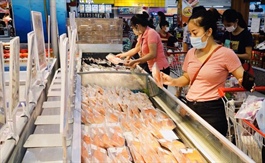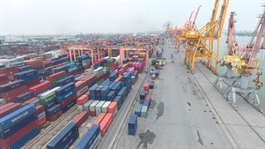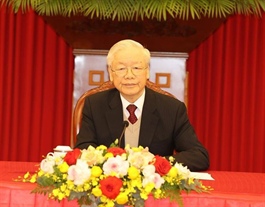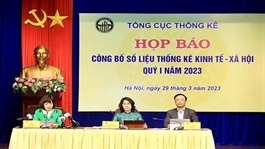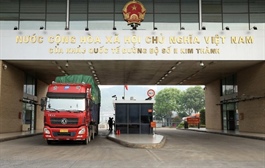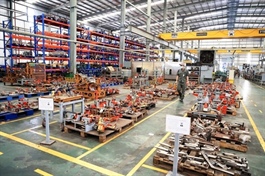Global minimum tax should not impact investors’ benefits: conference
Global minimum tax should not impact investors’ benefits: conference
Viet Nam needs to develop appropriate policies to adapt to the global minimum tax and remain an attractive FDI destination, a seminar heard in HCM City on Wednesday.
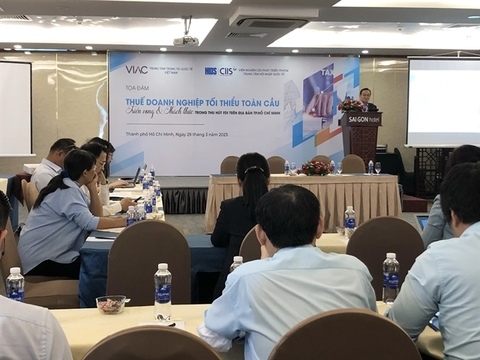
|
Dr Tran Du Lich told the seminar, titled "Global Minimum Corporate Tax - Prospects and Challenges in attracting FDI in HCM City", that the global minimum corporate tax rate of 15 per cent, which is set to be applied next year in Viet Nam, is forecast to have a significant impact on Viet Nam in whose economy FDI plays a significant role.
The tax applies to multi-national corporations with revenues of at least 750 million euros (US$870 million). When a company invests in a foreign country but pays corporate income tax of less than 15 per cent in that country, it will have to pay the difference in the country where it is headquartered.
As of today, 141 countries and territories have signed up to implement the tax.
“It is estimated that 1,015 FDI companies in Viet Nam will be affected by the tax,” said Lich, who is a member of the National Advisory Council for Monetary Policies and vice president of the Vietnam International Arbitration Centre.
Viet Nam uses tax and land rentals as two key incentives to attract FDI, and it needs to amend its investment attraction policies to ensure compatibility with the minimum tax but still maintain a favourable environment to attract investment, he said.
Phan Duc Hieu, Permanent Member of the National Assembly’s Economic Committee, said in recent years Viet Nam has mainly used tax incentives such as complete waivers and breaks and incentives for investors investing in industrial parks, economic zones, high-tech parks, and others.
“According to preliminary estimates, foreign companies are subject to an average corporate income tax of 12.3 per cent, against the regular 20 per cent. The rates for large corporations are as low as at 2.75 -5.95 per cent.”
He and other experts at the seminar agreed that the new tax rule is both a challenge and an opportunity for Viet Nam with regard to improving its investment environment.
The country needs to switch to cost-based incentives, including super-reduction and cost-based tax deductions if needed, he added.
Do Thien Anh Tuan, a lecturer at the Fulbright School of Public Policy and Management, said HCM City was a bright spot in attracting FDI with a total of US$3.94 billion last year, a year-on-year increase of 5.4 per cent.
It had 11,273 operational projects with total capital of $55.84 billion at the end of last year, and FDI has greatly contributed to its socio-economic development, he said.
To continue attracting high-quality FDI projects, the city should abandon its tax incentive approach and focus on creating a fair and equal competitive environment, investing in human capital, promoting R&D, upgrading infrastructure, improving the business environment, speeding up administrative reform, implementing green growth, and making itself a livable city, he said.
Agreeing with him, Phan Vu Hoang, deputy general director of Deloitte Vietnam, said the quality of the investment environment is more important than incentives.
Viet Nam has no other choice than implement this tax rule, but it has to participate wisely, he said.
“If we are smart enough to redesign the system of preferential policies to attract investment, we have countless opportunities.”
Le Thanh Nhan, manager of the Saigon Hi-Tech Park’s enterprise management department, said improving the business and investment environment are key to attracting investment.
Prompt resolution of investors’ difficulties by government agencies is also very important, he said.
“We have many good policies but their implementation is somehow not effective, and that needs to be improved.”






